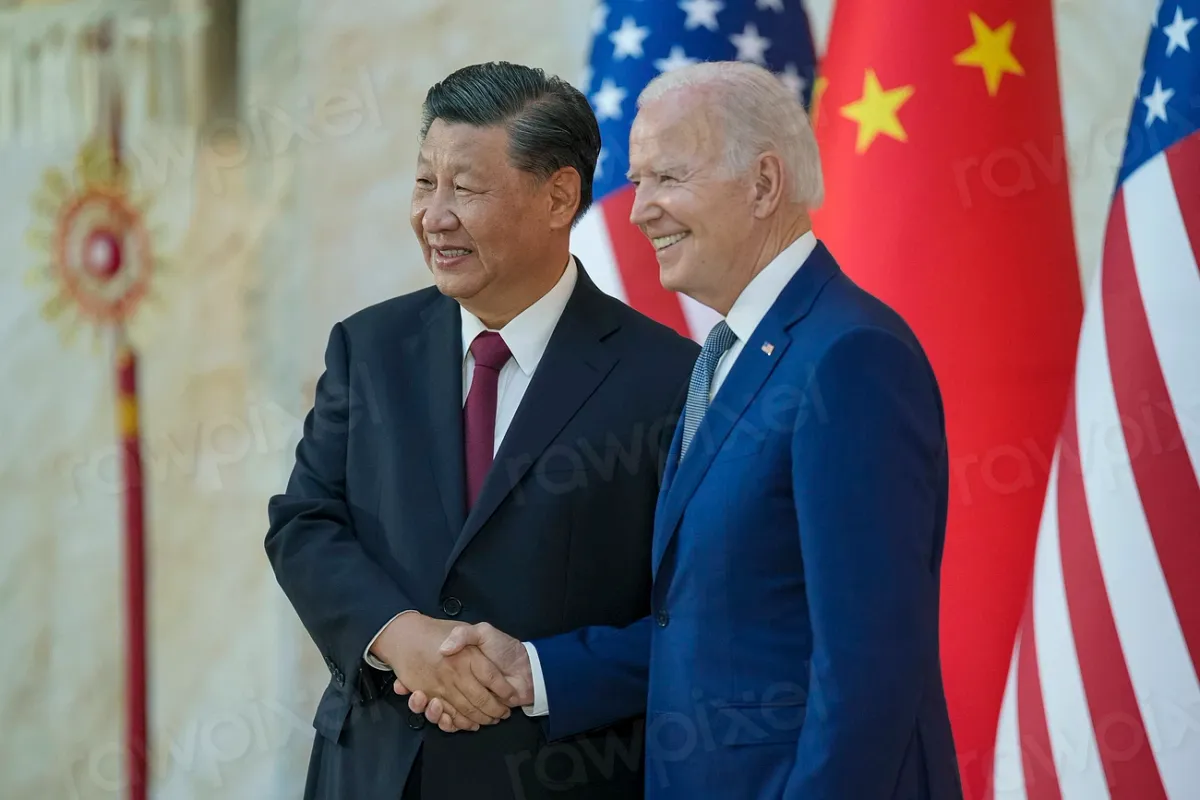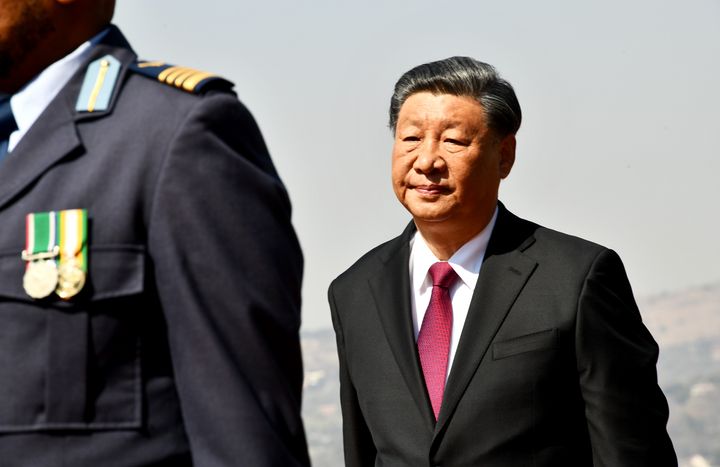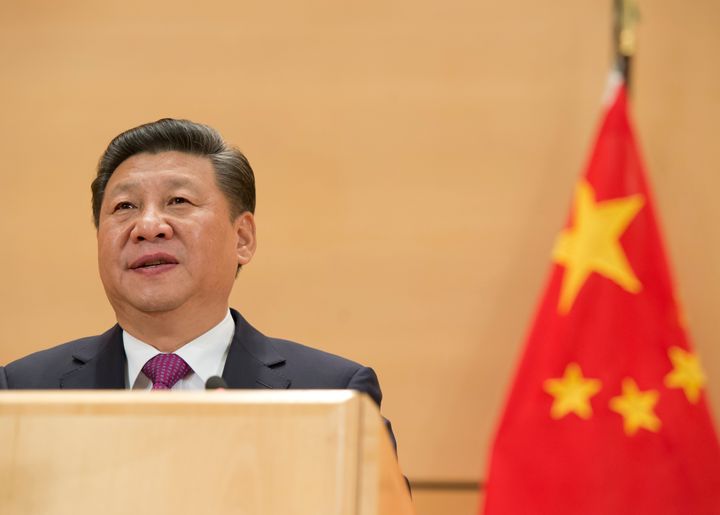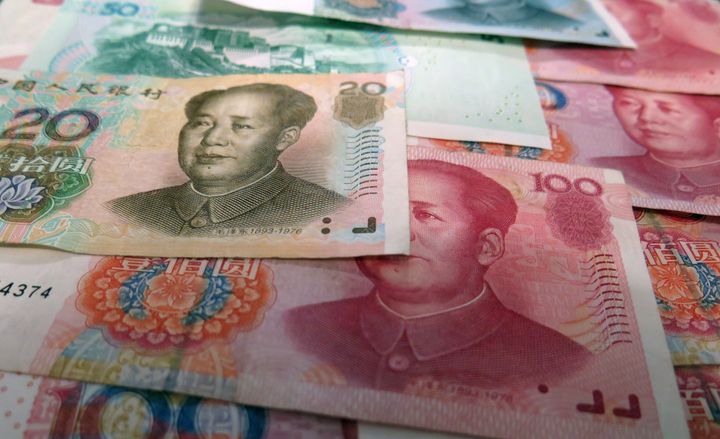Biden Cites 'Real Progress' After Extensive Talks with China's Xi

The Lede: President Joe Biden and Chinese President Xi Jinping met on Wednesday in a luxury estate near San Francisco during an annual summit attended by Asian leaders. Biden later commented that the meeting, which focused on Taiwan, military communications, anti-drug crackdown and ongoing geopolitical challenges, involved “some of the most constructive and productive discussions” the two leaders have had.
What we know:
- Biden and Xi have made some progress on several issues during their recent meeting that has been in the making for over a year. They have agreed to cooperate in combating global illicit drug production and trafficking, particularly synthetic drugs like fentanyl – a deadly component of drugs sold in the United States. They've also agreed on establishing a working group to enhance law enforcement coordination in addressing this issue, the White House reported.
- Another area where the world leaders found common ground was to resume military communications. A senior official told the Associated Press that it means Defense Secretary Lloyd Austin will engage in discussions with his Chinese counterpart once an appointment is made for the position, followed by similar interactions at various levels within the military hierarchy. "Vital miscalculations on either side can cause real, real trouble with a country like China or any other major country," Biden said.
- President Biden reiterated to Xi Jinping that the United States has maintained a consistent one-China policy over the years, opposing any unilateral changes to the status quo and advocating for peaceful resolution of cross-strait differences. He urged restraint in China's military actions in and around the Taiwan Strait. Based on the Ministry of Foreign Affairs of China, Xi said the U.S. should demonstrate its commitment to not endorsing "Taiwan independence" through concrete actions, cease supplying arms to Taiwan, and back China's peaceful reunification efforts. “China will realize reunification, and this is unstoppable,” the Ministry wrote. Even though the U.S. remains worried about China's growing military presence near Taiwan, officials from the meeting didn't think Xi was planning an invasion.
- According to the Ministry’s readout, President Xi mentioned that U.S. actions on export control, investment screening, and sanctions harm China's legitimate interests. The country’s development, guided by its own principles, cannot be stopped by external forces, and he urged the U.S. to lift unilateral sanctions for a fair and equal business environment. The White House coverage of the event doesn’t say anything on the matter and there is no indication on what Biden responded.
- President Biden urged President Xi to use his influence to reduce global tensions and specifically requested China's assistance in calming the situation between Israel and Hamas, as well as in withholding military support for Russia's invasion of Ukraine. Reports say that Xi primarily listened during the conversation.
The background: The leaders of the world’s largest economies met exactly one year and a day after their previous encounter, which took place during the G20 summit in Bali, following China's suspension of discussions in protest of a visit to Taiwan by the former U.S. House Speaker, Nancy Pelosi. Since then, there have been notable degradations in the relationship between the United States and China. In February reports emerged that a Chinese surveillance balloon was flying over the United States, prompting Secretary of State Antony Blinken to cancel a planned trip to China.
Despite ongoing tensions, over the past few months, a series of significant high-level meetings unfolded between U.S. and Chinese officials. From Secretary of State Antony Blinken's meeting with Chinese President Xi Jinping and Foreign Minister Wang Yi to Xi’s meeting with a U.S. Senate delegation, led by Senate Majority Leader Chuck Schumer, marking the first congressional visit to China in four years. Just eight days later, on October 17, the United States expanded its export controls, aiming to prevent China from obtaining advanced computer chips and the necessary manufacturing equipment. Later in the month Russian President Vladimir Putin attended China's Belt and Road Forum and held discussions with President Xi, adding to an already existing divide between U.S. and China on the war in Ukraine.
Last month Chinese ships collided with two Philippine vessels that were delivering supplies to troops in the South China Sea. In response to the incident, the U.S. issued a warning, stating its commitment to defend the Philippines in the event of an armed attack, highlighting the escalating tensions in the region.
The meeting that took place on Wednesday was part of the Asia-Pacific Economic Cooperation summit, hosted by President Biden himself. There were small gatherings of protesters against the Chinese Communist Party during Xi's arrival, while some local supporters displayed U.S. and Chinese flags and welcoming signs in Chinese.
Both leaders went into Wednesday’s meeting with low expectations for reaching key agreements. Instead, the goal was to set boundaries for U.S.-China rivalry and prevent further deterioration in their relationship, which could increase the likelihood of a crisis or conflict.
Likely outcomes/Takeaway:
- In contrast to the rhetoric used after their meeting in Bali one year ago, the language regarding Taiwan was more conciliatory this time. While President Biden did express his concerns about possible Chinese interference in Taiwan's elections, the contrasting narratives between his press conference and China's mention of "positive statements made by the United States" regarding Taiwan may generate unease in Taipei.
- China is struggling with a post-COVID economic rebound that has been exacerbated by U.S. sanctions, including restrictions on the export of advanced technologies. Xi’s goal was to address these issues at the meeting and possibly, restart from a clean slate. However, at this point, there is not much indication that Xi’s remarks on easing sanctions would result in any real actions from the Biden administration.
- The agreement between Biden and Xi to establish a bilateral counternarcotics working group holds the potential for positive outcomes. If China genuinely commits to cooperation in this area, it could lead to a reduction in the flow of fentanyl to the United States. Previously, after Nancy Pelosi's visit to Taiwan China stepped back from counternarcotics cooperation with the United States, which raised skepticism over the success of the new agreement.
Quotables:
- “My responsibility is to make this rational and manageable so it doesn’t result in conflict. That’s what I’m all about. … To find a place where we can come together and where we find mutual interest, and most importantly, in the interest of the American people. And that’s exactly what we’ll do,” President Biden before the meeting.
- “China has no plans to surpass or unseat the United States, and the United States should not scheme to suppress or contain China,” Xi said, according to Chinese state media coverage. “Both sides should understand each other’s principles and bottom lines, not make or stir up trouble or cross boundaries, (but instead) communicate more, have more dialogue and more discussions, and handle differences and accidents calmly.”
Good Reads:
Pandas, fentanyl and Taiwan — takeaways from Biden’s long-awaited meeting with Xi (The Associated Press)
Whiplash in China as state media does U-turn on U.S. (The Washington Post)
In Talks With Biden, Xi Seeks to Assure and Assert at the Same Time (The New York Times)



